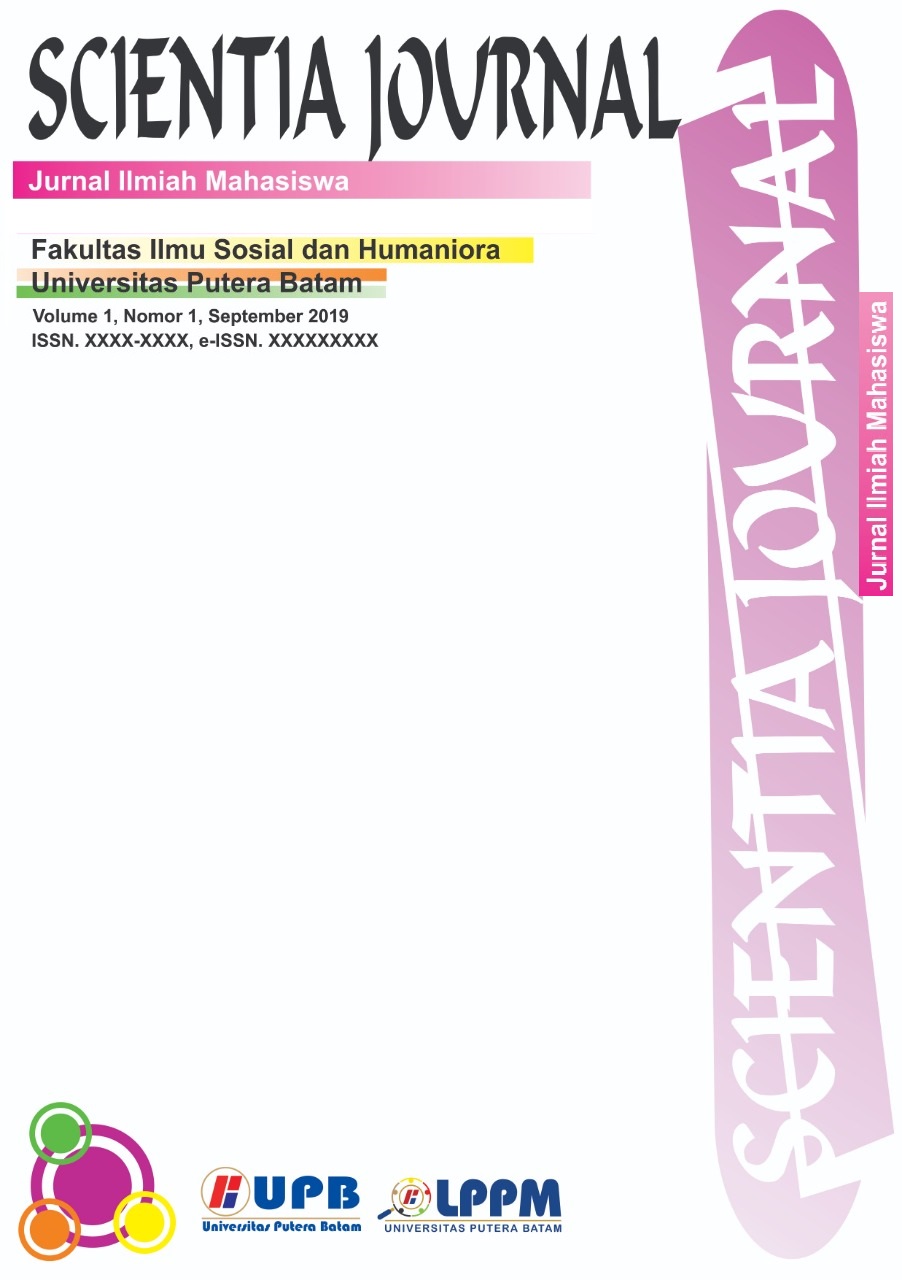PENGARUH DISIPLIN KERJA, ROTASI KERJA DAN STRESS KERJA TERHADAP PRODUKTIVITAS KERJA KARYAWAN PT EXCELITAS TECHNOLOGIES BATAM
PENGARUH DISIPLIN KERJA, ROTASI KERJA DAN STRESS KERJA TERHADAP PRODUKTIVITAS KERJA KARYAWAN PT EXCELITAS TECHNOLOGIES BATAM
DOI:
https://doi.org/10.33884/scientiajournal.v6i1.8695Abstract
Productive employees with good work results will certainly make the company better. However, creating
productive and high-quality employees is certainly not an easy matter for a company, where the company
must of course think about the best strategy to stimulate work enthusiasm. Many factors can influence an
employee's productivity, one of which is work discipline, work rotation and work stress. This research is
quantitative research. The population in this study were all employees of the Department Detection, Line
TPMI and SMD APD at PT Excelitas Technologies Batam, totaling 113 people using a saturated sampling
technique. Based on the results of statistical tests, it is known that the variables of work discipline, work
rotation, work stress and work productivity are normally distributed, where multicollinearity and
heteroscedasticity do not occur in the independent variables. The results of the t-test show that the work
disciplines partially no effect on work productivity with a significance rate of 0.721 > 0.05. Work rotation
variable is partially no effect on work productivity with significance levels 0.293 > 0.05. Work stress
variable partially significantly affect on work productivity with significance levels Working environment,
work discipline and work stress simultaneously affect employee performance with significance levels 0.001
< 0.005. Work disciplines, work rotation, and work stress simultaneously affect on work productivity with
significance levels 0.001 < 0.005.
References
Apriyani, D., Purnamasari, E.D. and Wulandari,
T. (2023), “Pengaruh Beban Kerja ,
Disiplin Kerja dan Stres Kerja terhadap
Kinera Karyawan pada PT Hindoli ( A
Cargill Company )”, Eksis: Jurnal Ilmiah
Ekonomi Dan Bisnis, Vol. 14 No. 1, pp.
–16, doi: 10.33087/eksis.v14i1.337.
Ariani, D.R., Ratnasari, S.L. and Tanjung, R.
(2020), “Pengaruh Rotasi Jabatan,
Disiplin Kerja, Dan Stress Kerja
Terhadap Produktivitas Kerja Karyawan”,
Jurnal Dimensi, Vol. 9 No. 3, pp. 480–
, doi: 10.33373/dms.v9i3.2723.
Fathin, L.N. and Wasiman. (2023), “Pengaruh
Disiplin Kerja, Motivasi Dan Kompensasi
Terhadap Kinerja Karyawan PT Excelitas
Technologies Batam”, Jurnal Manajemen
Bisnis Universitas Putera Batam, Vol. 26
No. 1, pp. 56–67.
Hasibuan, R. (2018), “Pengaruh Rotasi
Jabatan, Disiplin Kerja dan Beban Kerja
Terhadap Produktivitas Kerja Karyawan
di Harmoni Hotel Batam”, Jurnal Bening,
Vol. 5 No. 2.
Jain, M. (2017), “Pengaruh Rotasi Jabatan
Terhadap Produktivitas Kerja Pegawai
Dinas Pendapatan Kabupaten Kutai
Timur”, EKONOMIA.
Kristanti, D., Satriyono, G., Astuti, P., Christian,
M. and Meydiansyah, S.D. (2022), “The
Effect of Work Rotation and Work Stress
as An Individual on Work Productivity In
Krupuk Factory UD Kriuk DVD Kunir
Kediri”, Jurnal Pendidikan Tambusai, Vol.
No. 1, pp. 4662–4671.
Naqvi, S.M.H., Khan, M., Kant, A.Q. and Khan,
S.N. (2013), “Job Stress and Employees’
Productivity: Case of Azad Kashmir
Public Health Sector”, Interdisciplinary
Journal of Contemporary Research in
Business, Vol. 5 No. 3, pp. 525–542.
Sutrisno, Karyono and Sawir, M. (2023),
“Analysis of Work Attitudes and Work
Discipline on Work Productivity”, Jurnal
Ekonomi, Vol. 12 No. 01, doi:
http://ejournal.seaninstitute.or.id/index.ph
p/Ekonomi.
Yahya, R.Z. and Laura, N. (2021), “Pengaruh
Work From Home Dan Work Life Balance
Terhadap Produktivitas Kerja Dengan
Motivasi Sosial Sebagai Variabel
Moderating Pada Pt. Cemerlang Indo
Pangan”, CENDEKIA Jaya, Vol. 3 No. 2,
pp. 20–40, doi: 10.47685/cendekiajaya.v3i2.186.
Zainal, H. (2017), “Influence of Work Motivation
and Discipline on Work Productivity”,
Advances in Social Science, Education
and Humanities Research (ASSEHR),
Vol. 149 No. 2, pp. 25–27.














